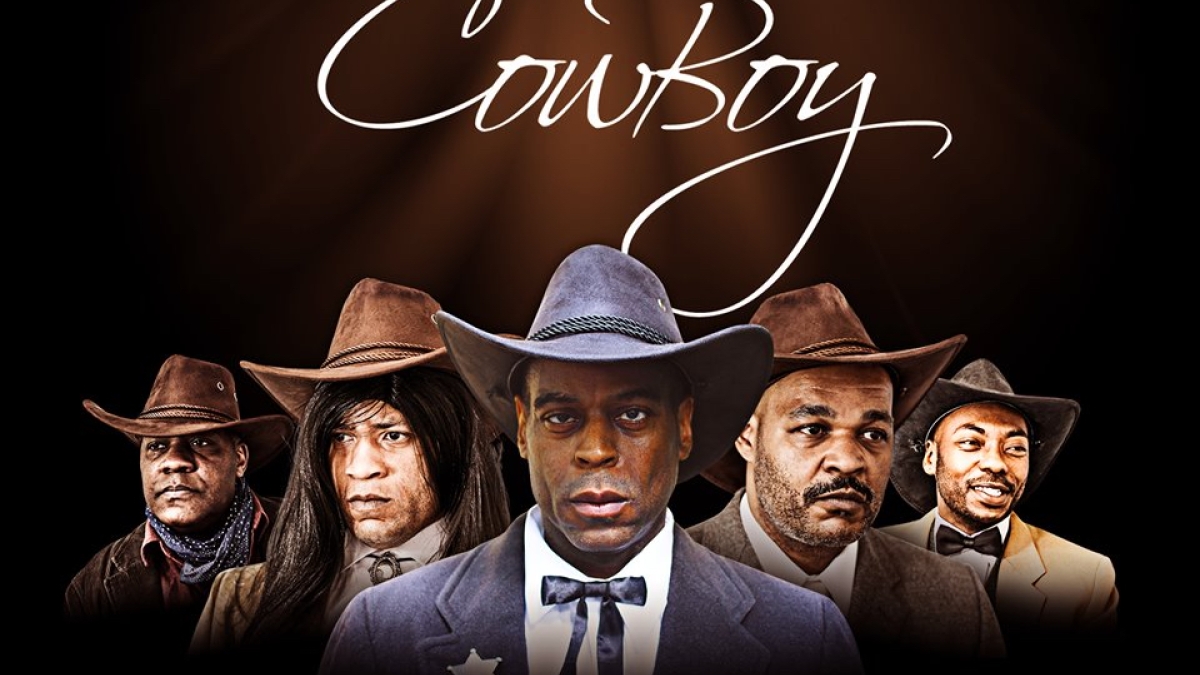Award-winning playwright to bring cowboys to ASU Gammage with digital performance

The cast of "Cowboy," a play written and directed by Layon Gray.
Black cowboys are an integral yet forgotten element of the Wild West, which is something playwright and director Layon Gray hopes to change in his latest work, “Cowboy.”
"Cowboy,” written and directed by Gray, tells the story of Bass Reeves, a freed slave who protected the Wild West as the first Black United States deputy marshal. Bass is said to have arrested more than 3,000 outlaws without sustaining a single gun wound. Many people said he inspired the Lone Ranger character.
A free, digital performance of the play is being offered by ASU Gammage at 6 p.m., Thursday, Feb. 25.
“Growing up, I always loved Westerns but you never saw any Black cowboys,” Gray said. “And I was always interested, you know, in that as I began writing … like were there really Black cowboys? Did Black cowboys exist back then?”
Gray discovered Reeves’ story while researching another project, but tabled the idea for “Cowboy” for three years.
“There was very little information on the internet about him at the time when I started just doing research … and then come to find out, there were other Black cowboys that we didn’t know,” Gray said. “Because what people didn’t know, during slavery, the slaves would tend to the horses. So, they became more of like horse whisperers to the horses … but just finding out this information that there were many more Black men who took care of the horses back during that time and who were very prominent back during the Old West was amazing for me to discover, and I was like, you know, I have to tell this story.”
Gray’s other works also focus on Black stories, such as “Black Angels Over Tuskegee,” about the Tuskegee airmen.
“For me as a storyteller, I think it’s important to tell unique pieces, unique stories that aren’t in history books and that people don’t know about,” Gray said. “I find that more interesting than just telling something that people already know. And the way I write — I don’t just write just about the historical people themselves. I usually create a fictional story around a real person. For me as a writer, that gives me more freedom and leeway to tell a unique story, instead of it being just more of a biography.”
Though Gray always had an interest in the arts, he never thought that a small-town kid from Louisiana could make it to Broadway.
“I was an all-state pro quarterback in high school and I went to college on a scholarship, you know, my whole dream and goal was to play football, professional football, my whole life,” Gray said.
One day after football practice, Gray heard what he thought was the movie, “Grease,” which he calls “one of my favorite movies of all time.”
After following the sound to the theater department, Gray realized that students were performing the musical version of the film and a lightbulb clicked.
“So right in that moment, I was like, 'Wow, this is what I want to do,'” Gray said. “I want to get up on stage and do this, so I had to do a lot of ripping and running lines to the coach saying I was sick and I auditioned for a play. I got cast in it. So eventually, I had to make the choice of doing theater or doing sports and I gave up the scholarship and changed my major to theater and the rest is history.”
Though “Cowboy” sold out all performances in a day at the 2019 National Black Theatre Festival, the coronavirus pandemic has significantly scaled back how Gray and his team are able to present the show, including its format shifting to a streamed, digital performance.
“The whole ending, you know, when the tornado comes, that’s one of my favorite parts, when the tornado just hits the saloon,” Gray said. “We can’t do it like we want to do it with all the effects, you know, because it is a bare-bones production with the projection and screen, but the tornado, that’s one of my favorite parts.”
After a challenging year for the theater community, the upcoming performance at ASU Gammage is “a beautiful moment,” Gray said.
“It’s been very, very difficult to try to be as creative as you can because everyone is doing Zoom now,” Gray said. “And for me, I’ve never been a fan of Zoom because it doesn’t give you that up-close, personal attention that theater needs. So, with what we’re doing at ASU Gammage … where the actors are back on stage, even though there’s not a live audience, you get that feel of theater. We’re taping it, and you get that feel of theater, right up close. So, I think people have found new ways to bring theater to homes with taping it and filming it.”
Get more information about the upcoming performance.
More Arts, humanities and education

Professor's acoustic research repurposed into relaxing listening sessions for all
Garth Paine, an expert in acoustic ecology, has spent years traveling the world to collect specialized audio recordings.He’s been…

Filmmaker Spike Lee’s storytelling skills captivate audience at ASU event
Legendary filmmaker Spike Lee was this year’s distinguished speaker for the Delivering Democracy 2025 dialogue — a free…

Grammy-winning producer Timbaland to headline ASU music industry conference
The Arizona State University Popular Music program’s Music Industry Career Conference is set to provide students with exposure to…

